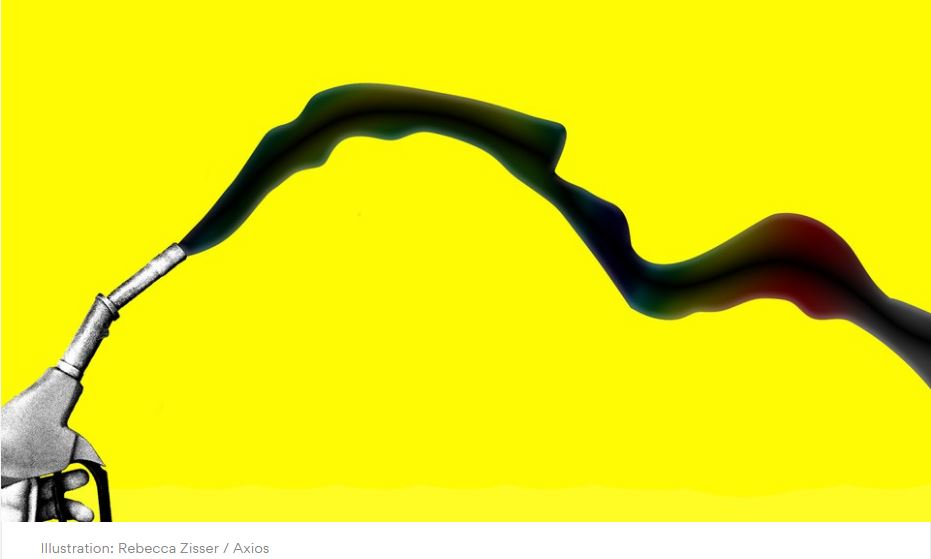
Axios | Amy Harder | November 7, 2018
Driving the news:
- The Organization of Petroleum Exporting Countries, the oil cartel of Middle Eastern countries that produce about 40% of the world's oil, releases its world outlook on Tuesday that will project oil demand to keep increasing through at least 2040.
- IHS Markit, a consulting and information services company, in coordination with others, is set to release as soon as this week a report finding oil demand could flatten out -- but not decline -- in the 2030s.
- The United Nations annual climate conference starts this week and goes through Nov. 17. It's not about oil, but the world's attempt to address climate change is one of the main drivers that is already starting to sap demand for oil in some developed countries.
The big picture
The global economy is growing at a surprisingly brisk and broad pace not seen in the last decade, which has been marred by recessions in Europe, the U.S. and elsewhere. That means more oil demand, even accounting for higher efficiencies in developed countries.
"It's funny to be talking about peak demand when demand has been so strong recently," Daniel Yergin, energy scholar and vice chairman of IHS Markit said in an interview. "I think people were taken by surprise at the strength of the synchronized economic growth. They've gotten so used to thinking Europe would never recover."
The International Energy Agency, a Paris-based group that advises nations on energy policy, keeps increasing its estimates for oil demand because of this economic growth. Oil demand is around 96 million barrels a day, with the IEA predicting an increase of approximately 1.5% over the next couple of years. Oil prices, in turn, have crept up to near $60 a barrel, a level not seen since 2015.
"Based on what we know now, we would need major technological breakthroughs or weak world growth, including for large emerging and developing economies, for oil demand to peak in the next 20 years," said Gian Maria Milesi-Ferretti, deputy director of the International Monetary Fund's research department.
Read the full story here.


